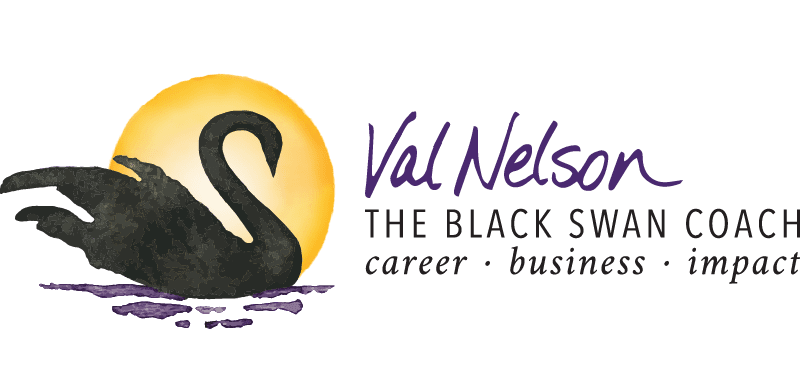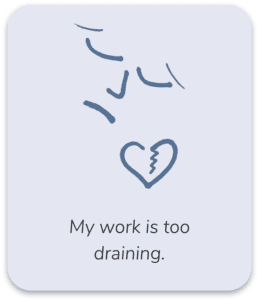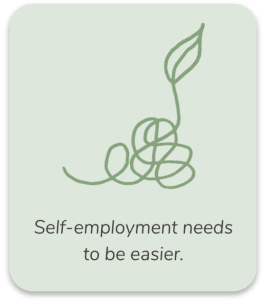Stating a narrow niche market for your business can be so effective that I’m determined to help clarify this for you. If this post isn’t enough, please leave a comment below.
Does your basic pitch say something like “I help people get things done.” or “I’m a life coach.”? If so, that vagueness could be interfering with your client attraction.
It’s hard for listeners to picture the generic words “people” or “things” or “coach” so they will ignore it. Vagueness puts them to sleep.
It doesn’t matter if you actually can help everyone. No one will listen, and you won’t be able to serve the people who you could be serving.
But they will pay attention if you say “I help older adults who want to find a fun exercise plan that helps them feel great.”
Your audience will listen even if it’s not describing them. They’ll say “OH, my mom could use that!” Or “Oh, I need that too, do you work with people in their 30s too?”
When I first mentioned my introvert specialty, I had people say, “Oh, cool, do you help extroverts too?” It’s a conversation starter.
The concrete nature of what you say keeps their attention.
This post will define niches and why you could benefit from a narrow niche. The next post will explain how to choose your niche.
Fear of Going Narrow
If you’re like most of my business owner clients (and myself), you resist narrowing your audience to a very specific niche. It seems so counter-intuitive to making money, right? (I went back and forth on deciding for years.)
Turns out there’s really nothing to lose by going narrow, and there’s much to gain, despite what our fearful minds want to believe.
When you choose a narrow niche market that’s the right fit for you, it’s like turning up the heat on your marketing. It’s one of those odd paradoxes that your ideal audience will flock to you if you go narrow, which means you’re getting more clear with your description.
Defining Niche
A niche is that sweet spot where you best fit in the market. You might refer to it as your specialty, your ideal audience, or your target market.
I purposely say niche or ideal audience instead of target market. Your ideal is more about who you want to attract, while target sounds like you have to go get them. Attraction models are more fun and work better.
For the science lovers out there, you’ll recognize niche as the ideal habitat for an organism to thrive in. Perfect analogy for a business niche.
Reasons to Go Very Narrow
- Research about going narrow shows you’ll get better results and better customer loyalty.
- People pay better attention when they can visualize what you’re describing.
Paint a picture for them. Even if it’s not describing them, they’ll be better able to think of someone to refer to you. - It’s easier to be a big fish in a small pond.
You can easily become the go-to person on your area of expertise for a small audience. Everyone has expertise in something so make sure you discover yours and let people know what it is. - It’s the fastest way to grow your business and credibility.
It won’t take long at all to become a known expert on a subject where very few have specialized. When I started talking about focusing on coaching introverts, I realized I was one of about 6 in the country. Almost as soon as I put it on my website, I got contacted by people all over the country, and beyond, both as a coach and as someone to interview in the media. - It’s easier to rank higher in a web search for unusual search terms.
Better to be in the top 10 for only a few people than to never be in the top 10 at all. - Not only are more people finding you with a narrow niche, more of them are ready to sign on because you’re “the one” in their minds.
I’ve had people tell me they already knew they wanted to work with me before we even spoke, because of my specialty. - People are more willing to pay for your expertise.
- Your brain is more able to focus on one audience.
You’ll be more able to truly understand their needs and how to best serve them. Focus is a powerful force that feeds you more and more over time. You won’t have time to stay current on multiple topics.
It’s always better to start highly focused and then work outwards than to begin with a broad, unspecific mandate.” ~Chris Guillebeau, A Brief Guide to World Domination
What is Narrow Enough?
You want to define something so clearly that people can easily picture it, and thus it feels narrow.
A narrow niche doesn’t have to be a small portion of the population to be effective. For instance, my specialty of serving introverts comes across as very narrow and has worked well for me, but actually introverts make up about half the population so it’s still a very large group.
Don’t worry about numbers in your audience as much as how concrete your description feels. Actual criteria for choosing your niche is listed in the next post about how to choose your niche.
Does Everyone Need a Niche?
I was just talking to a client who I realized didn’t need to name a niche market as much as others do. There are always exceptions.
In her case, her reputation was already so strong in many areas, that her marketing could be as simple as calling a few people to say she was available.
For her, going narrow isn’t so much about marketing needs but simply to give her brain a break and to ensure a lasting edge in the market. So, I think she’d benefit from choosing a narrow niche market but it’s not as essential right now.
What’s Next for Your Business?
Think about whether you could go more narrow and how it would benefit you.
When you want help to choose your niche, go to the next post, How to Choose Your Niche Market.
Stories and questions are welcome in the comments box below.
Related Articles in the Blogosphere
- A New Model for Business – The Museum (Harvard Business School)
(Explains a related business paradox: offering less options keeps customers happier.) - The Long Tail
(For those who love theory and studies, this is a marketing expert’s look at how our economy and culture is shifting from mass markets to million of niches, thanks to the Internet.)


![[Painting by Weyakin Designs. Click for website]](https://valnelson.com/wp-content/uploads/2021/04/weyakin-niche-image.jpg)



